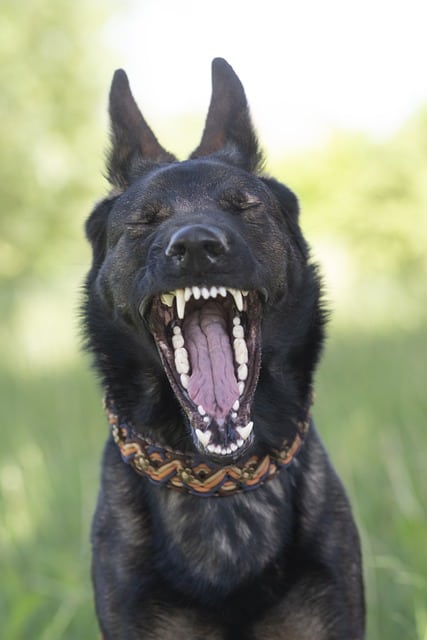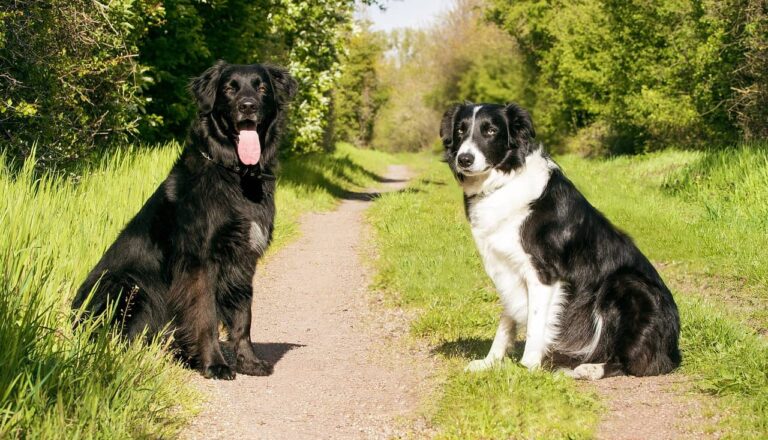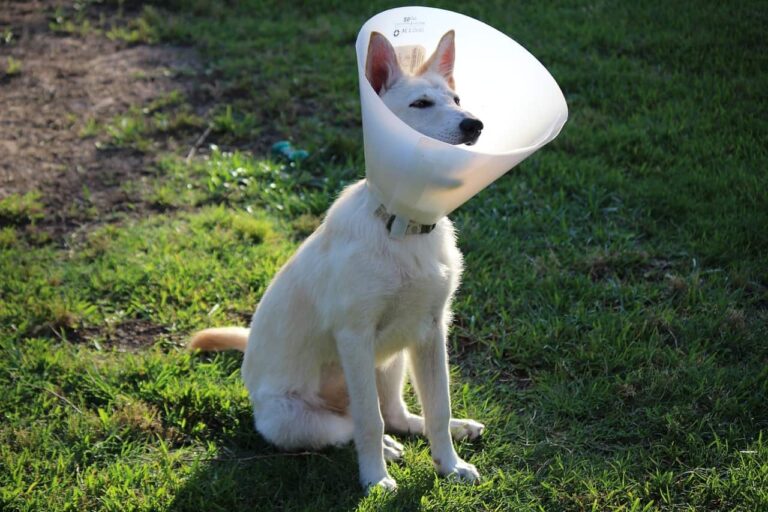Dog Dental Health: Can Dogs Teeth Grow Back?

As a dog owner, you may have wondered if your furry friend’s teeth can grow back. After all, dogs are known for their love of chewing on just about anything. This blog post will answer the age-old question: Can dogs teeth grow back? We’ll explore the anatomy of a dog’s teeth, common dental issues that can occur, and whether or not their teeth have the ability to regenerate.
Contents
- Can Dogs Teeth Grow Back? Dog’s Teeth Regrowth
- What Causes Dogs to Lose Their Teeth?
- The Scheduling of the Teething Process in Puppies
- When Do Puppies Begin to Lose Their Teeth?
- Can Canine Teeth Grow Back?
- How to Handle a Dog’s Lost Tooth Situation
- How to Feed Your Dog if It Loses Its Teeth
- Are There Remedies for Puppy Teething Issues?
- Is it Normal for Puppy Teeth to Fall Out Early?
- Can You Replace A Dog’s Tooth?
- Final Thoughts
Can Dogs Teeth Grow Back? Dog’s Teeth Regrowth

Pet owners have been interested in how dogs’ teeth grow back for a long time. To understand this, we must look at how a dog’s teeth are made. Just like people, dogs have two sets of teeth: their baby teeth and their adult teeth.
In the initial stages of a dog’s life, chewing and biting heavily depend on their baby teeth. However, as puppies mature, these deciduous teeth gradually shed to create space for their permanent teeth. This innate progression enables puppies to acquire a complete set of robust and sound adult teeth.
Once a dog has their adult teeth, it will not grow back if lost. Unlike some animals, such as sharks, dogs cannot regenerate their teeth continuously. Once a tooth is lost or damaged, it is gone for good.
What Causes Dogs to Lose Their Teeth?
Dogs may experience tooth loss due to various factors. This can include natural processes like teething, dental diseases, decay, trauma or injury to the mouth, certain breeds being more prone to tooth loss, and infections or gum disease. Understanding these causes is essential for maintaining a dog’s dental health.
Dental disease: Dental disease is a common cause of tooth loss in dogs. Inadequate oral hygiene can cause plaque and tartar buildup on a dog’s teeth, causing gum inflammation and infection. This can cause tooth deterioration and loss.
Decay and Cavities: Just like humans, dogs can also develop cavities. These cavities form when bacteria eat away at the tooth’s enamel, leading to decay.
Trauma or Injury: Dogs are known for their athletic nature and can sometimes experience accidents or injuries that may lead to tooth loss. Trauma or injury to the mouth, such as a hard impact or a severe bite, can cause teeth to break or become dislodged. In these cases, immediate veterinary attention is necessary to assess the damage and provide appropriate treatment.
Certain Breeds: Dog breeds are more prone to dental disorders and tooth loss. Little breeds like Chihuahuas and Yorkshire Terriers have overcrowded mouths, which can cause misalignment and dental issues. Due to their short snouts and crowded teeth, Brachycephalic breeds like Bulldogs and Pugs experience dental difficulties.
Chewing Habits: A dog’s chewing habits can also contribute to tooth loss. Some dogs tend to chew on complex objects or engage in aggressive chewing, which can cause their teeth to crack or break. Additionally, toys or bones that are too hard can cause damage to a dog’s teeth over time.
The Scheduling of the Teething Process in Puppies
Puppy teething typically begins around 3–4 months and lasts several weeks. During this phase, puppies may feel discomfort and chew on objects. They gradually lose their milk teeth as their adult teeth start coming in. Proper dental care during puppy teething is crucial for healthy tooth development. It’s important to note that the timeline of puppy teething can vary slightly between individual pups, but most experience this process at around 3–4 months of age. Ensuring good dental hygiene during this time will help your puppy transition smoothly from baby to adult teeth.
When Do Puppies Begin to Lose Their Teeth?
Puppies typically start losing their baby teeth at around 4-6 months old. The process varies slightly between individuals, but the front incisors are usually the first to fall out. During this time, their gums may be slightly swollen or bleed. Losing baby teeth is natural and necessary for adult teeth to grow.
Can Canine Teeth Grow Back?
Canine teeth are crucial in a dog’s biting and tearing functions. If a puppy loses a canine tooth, an adult tooth will grow in its place. However, once a dog reaches adulthood, canine teeth do not grow back if they are lost. Proper dental care is essential to prevent damage or loss of these important teeth. In cases of permanent tooth loss, professional veterinary treatment may be necessary.
How to Handle a Dog’s Lost Tooth Situation
Losing a tooth can be a concerning situation for dog owners. If your dog loses a tooth, assessing the situation and taking appropriate action is important. Here are some steps to handle a dog’s lost tooth situation:

- Stay calm: Feeling worried if your dog loses a tooth is natural, but remaining calm is essential. Remember that dogs can live happy and healthy lives even with missing teeth.
- Check for bleeding or pain: Sift through your dog’s mouth to see any bleeding or signs of discomfort. If there is excessive bleeding or severe pain, seeking immediate veterinary care is crucial.
- Find the tooth: Try to locate the lost tooth if possible. This can help your veterinarian assess the situation more accurately.
- Rinse the mouth: Use a gentle saline solution or plain water to rinse your dog’s mouth if any blood or debris is present. This can help keep the area clean and prevent infections.
- Monitor eating and drinking habits: Observe your dog’s eating and drinking habits after losing a tooth. They may need some time to adjust, but if they are having difficulty, consult your veterinarian for guidance on transitioning to a new diet or modifying their food to make it easier for them to eat.
- Schedule a veterinary appointment: Regardless of whether your dog is experiencing significant pain or not, it’s always advisable to schedule a veterinary appointment after losing a tooth. Your veterinarian can thoroughly examine your dog’s mouth and provide appropriate recommendations for further care.
- Consider dental hygiene: Losing a tooth can remind your dog of the importance of dental hygiene. Regular brushing, chewing, and professional dental cleanings can help prevent future oral health issues and maintain a healthy smile.
How to Feed Your Dog if It Loses Its Teeth
Feeding a toothless dog can be challenging, but there are ways to make it easier. Opt for soft or moist food to ensure they can eat comfortably. Soaking dry kibble in water or broth can make it more manageable. Consult a vet for specific dietary recommendations for your dog’s nutritional needs.
Are There Remedies for Puppy Teething Issues?
Puppy teething can be a challenging time for both puppies and their owners. Here are some remedies to help alleviate teething issues:
Chew toys: Provide your puppy with appropriate chew toys, such as rubber toys or frozen washcloths, to help relieve discomfort and redirect their chewing behavior away from furniture or shoes.
Cold treats: Give your puppy frozen treats, like carrot sticks or homemade ice cubes made from low-sodium broth, to soothe their sore gums. The cold temperature can help numb the area and provide relief.
Tug-of-war games: Use tug-of-war toys to engage in interactive play with your puppy. This helps distract them from the discomfort of teething and provides an opportunity for bonding and mental stimulation.
Gentle massage: Gently rub your puppy’s gums with a clean finger or a soft cloth to provide some relief. Be sure to use gentle pressure and avoid causing any further irritation.
Dental chews: Offer dental chews specifically designed for puppies, which can help promote healthy teeth and gums while satisfying their natural urge to chew.
Safe distractions: Provide plenty of other safe distractions for your puppy, such as puzzle toys or treat-dispensing toys. These can keep them entertained and mentally stimulated, reducing their focus on teething discomfort.
Is it Normal for Puppy Teeth to Fall Out Early?
Puppies commonly start losing their baby teeth around 4-6 months old. This natural process of tooth loss and adult tooth eruption is normal. However, if a puppy loses teeth too early without getting new ones, it could indicate dental problems. Regular vet check-ups can help monitor the timing and progression of tooth loss in puppies.

Can You Replace A Dog’s Tooth?
Yes, it is possible to replace a dog’s tooth. Like humans, dogs can experience tooth loss for various reasons, such as injury or dental disease.
Canine dentures are expensive, ranging from $500 to $1000 per tooth. Additionally, it is not widely available, and it is still being determined whether every veterinarian offers this service.
Final Thoughts
So, can dogs teeth grow back? The answer is no; dogs’ teeth do not naturally grow back once lost. Unlike humans, dogs do not possess the capability to regrow permanent teeth. Therefore, if a dog loses a tooth, it will not grow back. However, as mentioned earlier, options are available for replacing a dog’s missing tooth.






